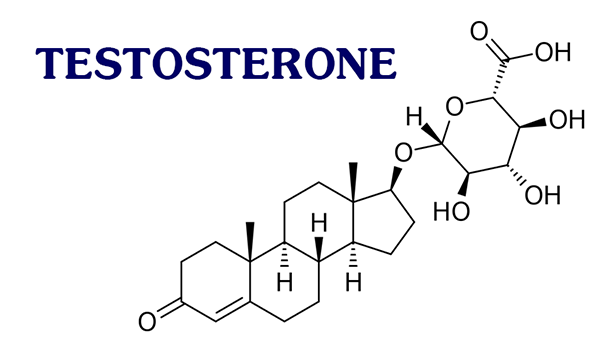In the U.S., parents and teens ask the same question over and over: does testosterone increase height? And the confusion gets worse because the internet mixes three very different things into one soup: normal puberty, medical hormone therapy, and supplement marketing that’s… let’s call it “confident.”
What tends to happen is you hear about growth spurts and assume testosterone is the gas pedal. It’s more like a timing signal that works with other systems. And timing matters a lot, because the body has a built-in “hard stop” on getting taller.
This article breaks down how testosterone affects height, when it helps, when it doesn’t, and why “boosting” it without medical guidance can backfire, especially for teens in the U.S. healthcare system.
Key Takeaways
- Testosterone supports growth during puberty, but it doesn’t directly “make you taller.”
- Height depends on open growth plates, genetics, nutrition, and hormones like human growth hormone (HGH).
- Once growth plates close, testosterone can’t increase height.
- Misusing anabolic steroids can stunt growth in teens by closing growth plates early.
- In the U.S., any hormone therapy belongs under a licensed endocrinologist’s care, not a checkout-cart “booster.”
1. Does Testosterone Increase Height During Puberty?
During puberty, testosterone rises sharply in boys. You see it in real life: more muscle, deeper voice, more body hair, and (yes) those classic growth spurts. But testosterone isn’t acting alone.
What you’re watching is your endocrine system coordinating multiple hormones like a band, not a solo act. Testosterone helps set the stage, and the big “height-driving” work comes from human growth hormone (HGH). HGH then pushes signals downstream to insulin-like growth factor 1 (IGF-1), which is strongly tied to linear growth during adolescence. (You’ll hear doctors talk about this chain when they’re evaluating growth concerns.)
And where does height actually happen? Not in your muscles. Not in your “posture.” Height increases at the ends of long bones, where you have growth plates (epiphyseal plates). These are active, living zones of cartilage that can lengthen bone as long as they’re open.
A practical way to picture it (and this is how I explain it to people who feel overwhelmed): testosterone is like the message that puberty is underway. HGH and IGF-1 are the workers laying down new “length” at the growth sites. If the growth sites are open, you can gain height. If they’re not… well, you’ll see that in a minute.
2. How Growth Plates Determine Final Height
If there’s one concept that clears up 80% of the confusion, it’s growth plates. You can eat perfectly, sleep perfectly, and have “high testosterone,” and you still won’t grow taller if your growth plates are closed.
Growth plates are soft cartilage areas near the ends of long bones. Think femur and tibia in your legs, because that’s where a lot of height comes from. While you’re growing, these plates keep producing new tissue that later hardens into bone. Over time, bone maturation catches up and those plates close (epiphyseal plate closure). Once they’re closed, the bone can thicken, but it doesn’t lengthen.
Now, here’s where testosterone gets misunderstood: testosterone contributes to the process that eventually shuts growth down. Even in males, some testosterone converts into estrogen, and estrogen is a key driver of growth plate maturation and closure in both sexes. So yes, puberty hormones help you grow, and they also move you toward the finish line. That’s the trade-off nobody mentions in ads.
In the U.S., closure usually happens roughly around:
- Girls: about 16–18
- Boys: about 18–21
Those are ranges, not a guarantee. Skeletal age can run ahead or behind your birthday age, which is why clinicians sometimes order a bone age X-ray to see what’s happening biologically, not just on the calendar.
If you’ve ever wondered why two teens the same age can look wildly different in height, that’s often the “timing” piece: puberty onset, growth tempo, skeletal age, and how long growth plates stay open.
3. Testosterone vs. Human Growth Hormone: What’s the Difference?
People mash these together because they both rise during puberty, but they don’t do the same job.
- HGH directly supports linear growth by stimulating growth at the plates.
- Testosterone supports puberty changes and can amplify HGH effects, but testosterone alone does not “stretch” bones longer.
Also, in the U.S., growth hormone therapy is FDA-regulated and prescribed for specific medical indications, like growth hormone deficiency, under specialist care. The pituitary gland is the main source of HGH, and when it underproduces, that’s when the medical conversation gets serious.
Here’s the comparison I use when someone wants the clean contrast without the medical lecture.
| Factor | Testosterone | Human Growth Hormone (HGH) | My plain-English commentary |
|---|---|---|---|
| Main role in puberty | Drives sexual development, muscle, bone density | Drives linear growth via growth plates | Testosterone changes how you look; HGH changes how tall you get (when plates are open). |
| Direct effect on height | Indirect | Direct | “Indirect” is where people get fooled, because the timing overlaps. |
| Where it comes from | Testes (mostly), adrenal glands | Pituitary gland | Different factories, different outputs. |
| Medical use in the U.S. | TRT for diagnosed low T; puberty induction in select cases | FDA-approved for specific growth disorders | Both are prescription-level decisions, not “DIY optimization.” |
| What it can’t do | Reopen closed growth plates | Reopen closed growth plates | Once plates close, the game changes to posture and proportions, not height gain. |
If you want reputable U.S. references to anchor this:
- NIH MedlinePlus overview of growth hormone: https://medlineplus.gov/hormones.html
- Mayo Clinic discussion of testosterone therapy basics: https://www.mayoclinic.org/tests-procedures/testosterone-therapy/about/pac-20384601
- FDA information hub (drug and biologic regulation context): https://www.fda.gov/
4. Can Testosterone Increase Height After 18?
This is the part that’s emotionally annoying, because people want a loophole. If you’re 18+ and still hoping testosterone can add inches, what tends to happen is you get pulled into the American supplement market where everything is “scientifically formulated,” “doctor designed,” and somehow always on sale.
But once growth plates close, testosterone can’t increase your height. It can increase muscle mass, change body composition, support libido, and affect mood and energy in people who truly have low testosterone. It can also improve bone density in the right clinical context. But it doesn’t lengthen long bones after epiphyseal closure.
Legitimate testosterone replacement therapy (TRT) in the U.S. requires a prescription and monitoring. If someone is selling you “TRT-like results” without labs, without a clinician, and without follow-up, that’s not healthcare. That’s marketing.
If you want a mainstream, careful medical framing, Mayo Clinic lays out what testosterone therapy is (and what it isn’t): https://www.mayoclinic.org/tests-procedures/testosterone-therapy/about/pac-20384601
5. Does Low Testosterone Affect Teen Growth?
Low testosterone in teens can matter, but not in the simplistic “low T equals short” way people throw around. What I keep seeing is this: low testosterone can delay puberty, and delayed puberty can delay the timing of the growth spurt. That can look like “stunted growth” in the moment, even if final adult height ends up normal once development catches up.
If puberty is delayed, clinicians can check serum testosterone levels and other markers through blood panels. They’re not guessing. They’re looking at the broader hormonal picture and growth pattern over time.
And yes, early intervention can matter when there’s a true hormonal imbalance, because timing interacts with growth plates. In the U.S., pediatric care and pediatric endocrinology are the lanes for this. The American Academy of Pediatrics is a solid starting reference point for how pediatric evaluation works in general: https://www.aap.org/
The tricky part is that treatment is case-specific. Some teens need observation and time. Some need targeted therapy. Some have underlying conditions that have nothing to do with testosterone boosters and everything to do with overall endocrine function.
6. Do Testosterone Boosters Increase Height?
Over-the-counter testosterone boosters are everywhere in the U.S. They often contain ingredients like ashwagandha or D-aspartic acid. The marketing tone is usually the same: “support,” “optimize,” “unlock.”
But these products do not increase height. And they’re not regulated the way prescription drugs are. In the U.S., dietary supplements fall under a different regulatory framework than medications, and enforcement often happens after problems occur, not before products hit shelves.
If you want the consumer-protection angle (which, honestly, is useful when ads get aggressive), the Federal Trade Commission explains how it handles deceptive advertising: https://www.ftc.gov/
Here’s what tends to happen in real life: you take a “booster,” you feel a bit different (sleep changes, stimulant-like effects, placebo, a training shift), and you connect that feeling to height hope. Then you measure two weeks later and… nothing. Because the mechanism wasn’t there.
7. Anabolic Steroids and Height: Risk for Teen Athletes
This is the part I get serious about, because the cost can be permanent.
Anabolic steroids mimic testosterone. In high doses, they can push the body toward faster bone maturation and earlier growth plate closure. For teens, that can reduce final adult height. People chase performance and accidentally shrink their long-term runway.
Steroid misuse is also tied to other risks (mood changes, cardiovascular strain, endocrine disruption), but staying on the exact outline here: the growth suppression risk is real because plates can close early.
And yes, use is banned in many competitive settings, including high school athletics and the NCAA as part of performance-enhancing drug policies. NCAA information starts here: https://www.ncaa.org/sports/2015/6/10/ncaa-banned-drugs.aspx
If you’re a teen athlete, the “shortcut” logic is seductive. But the body keeps receipts, and growth plates don’t negotiate once they’re closed.
8. Genetics, Nutrition, and American Lifestyle Factors
If you want the honest hierarchy of height factors, genetics sits near the top. You inherit a range, not a single number, but family height patterns matter a lot.
Then the controllables: nutrition, sleep, and overall health during childhood and adolescence.
A few specifics that come up constantly in U.S. families:
- Protein intake: supports growth and tissue building during adolescence.
- Calcium and vitamin D: support bone health and development.
- Sleep cycles: support normal growth hormone release patterns.
- Childhood obesity: can influence puberty timing, which then affects when growth plates start maturing toward closure.
CDC has broad resources on growth, child development, and obesity trends in the U.S. (useful context when puberty timing seems “early”): https://www.cdc.gov/
If you’ve ever noticed kids growing more during certain phases of the school year, you’re not imagining it. Sleep and routine shifts can change what’s happening hormonally. It’s not magic. It’s rhythm.
9. When to See a Doctor in the U.S.
Some situations deserve professional evaluation rather than forum advice.
In practice, these are common red flags:
- Height below the 5th percentile on CDC growth charts.
- No signs of puberty by age 14 in boys.
- Very rapid early puberty, because timing can shorten the growth window.
- A pattern where growth velocity drops off sharply compared to prior years.
Clinicians might use:
- CDC growth charts to track patterns over time: https://www.cdc.gov/growthcharts/
- A bone age X-ray to estimate skeletal age.
- Blood work for endocrine markers, depending on the situation.
And the money part matters in the U.S., so let’s not pretend it doesn’t: insurance coverage for hormone testing and specialist visits varies a lot by plan, state, and network. When families are surprised by costs, it’s usually because the referral pathway and lab billing codes get complicated fast.
If you’re in that “something feels off” zone, starting with a pediatrician is common, and they can refer to an endocrinologist when it’s warranted.
10. Does Testosterone Increase Height? The Evidence-Based Answer
So after all that, where do you land?
Testosterone supports growth during puberty by working indirectly with other hormones and systems. It helps create the conditions where growth spurts happen, largely alongside HGH and IGF-1, and only while growth plates are still open.
In adults, testosterone doesn’t increase height because growth plates have already closed. Testosterone therapy (TRT) can change muscle mass and sometimes bone density in clinically appropriate cases, but it doesn’t lengthen long bones after closure.
And for teens, misuse matters: anabolic steroids and high-dose hormone manipulation can speed up growth plate closure and reduce final height.
Height depends on growth plates, genetics, HGH activity, nutrition, and timing, not just testosterone. That’s the sentence people wish they’d heard before they spent money, took risks, or stressed for months over a supplement label.
Conclusion
If you’re a teen, the height conversation is really a timing conversation. Puberty hormones, growth plates, sleep, and nutrition all collide in a window that closes when it closes (sometimes earlier than you’d like). If you’re an adult, the height conversation usually shifts to things like posture, spinal health, and how you carry your frame, because the bone-length part is finished.
And if you’re somewhere in the middle, feeling behind your friends or worried about your kid’s growth, the most useful move in the U.S. system is often simple: track growth over time, use CDC growth charts, and bring the pattern to a pediatrician or endocrinologist. That’s where the guesswork stops—at least, it usually does once you get the right labs and a bone age read.
If you want to dig deeper using reputable U.S. sources, these are the links I personally point people to most often:
- CDC Growth Charts: https://www.cdc.gov/growthcharts/
- Mayo Clinic on Testosterone Therapy: https://www.mayoclinic.org/tests-procedures/testosterone-therapy/about/pac-20384601
- NIH MedlinePlus hormone overview: https://medlineplus.gov/hormones.html
- FTC consumer protection on advertising: https://www.ftc.gov/
- NCAA banned drugs list: https://www.ncaa.org/sports/2015/6/10/ncaa-banned-drugs.aspx
Because the internet loves a simple lever. Your body doesn’t work that way, not with height anyway… unless you’re still in the growth-plate years.
Hi there! My name is Erika Gina, and I am the author of Choose Supplement, a website dedicated to helping people achieve their height goals naturally and effectively. With over 10 years of experience as a height increase expert, I have helped countless individuals increase their height through diet, exercise, and lifestyle changes.
My passion for this field stems from my own struggles with being short, and I am committed to sharing my knowledge and experience to help others overcome similar challenges. On my website, you will find a wealth of information and resources, including tips, exercises, and product reviews, all designed to help you grow taller and improve your confidence and overall well-being. I am excited to be a part of your height journey and look forward to supporting you every step of the way.
Name: Erika Gina
Address: 2949 Virtual Way, Vancouver, BC V5M 4X3, Canada
Email: [email protected]



